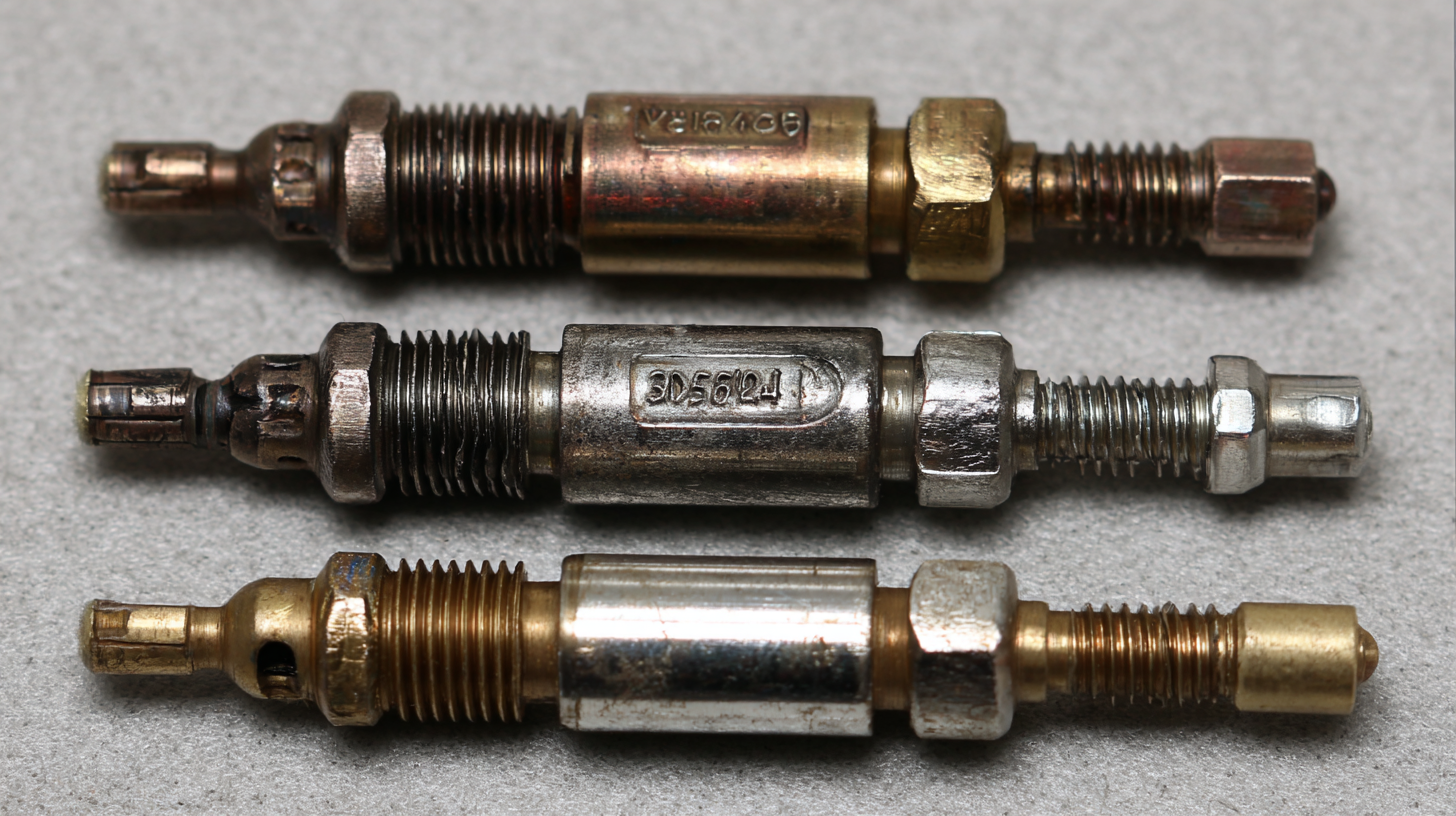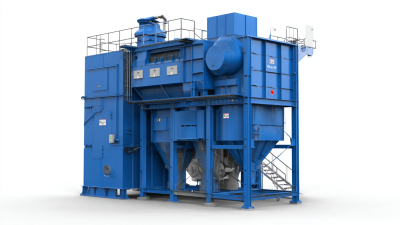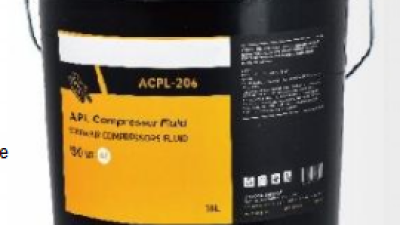How to Select the Right Thread Lubricant for Your Specific Needs
Table of Contents
- Understanding the Importance of Thread Lubricants for Different Applications
- Comparing Types of Thread Lubricants: Oils, Greases, and Pastes
- Key Factors in Selecting the Best Thread Lubricant for Your Needs
- Top Brands and Products: A Review of the Best Thread Lubricants Available
- Best Practices for Application and Maintenance of Thread Lubricants
- Maximize Your AC Performance with ACPL-206 Compressor Lubricant: The Ultimate Guide
- FAQS
- Conclusion
- Related Posts
 Choosing the right thread lubricant really matters if you want your threaded connections to work smoothly and last longer, no matter what kind of application you’re dealing with. At Shanghai Jiongcheng Industrial Co., Ltd., we totally get how important it is to have a solid lubrication solution that’s tailored to your specific needs—especially when you're working in tough environments. Our team has a lot of experience developing high-temp chain lubricants and specialized products like compressor, vacuum pump, and refrigerated compressor lubricants, which makes us pretty much a key player in the industry.
Thanks to our advanced tech in research and manufacturing, plus our carefully formulated chemical mixes, we’re confident that our lubricants deliver consistent, reliable performance. In this blog, I’ll walk you through what to look for when picking out a thread lubricant, and how the right choice can really boost your efficiency and make your equipment last longer.
Choosing the right thread lubricant really matters if you want your threaded connections to work smoothly and last longer, no matter what kind of application you’re dealing with. At Shanghai Jiongcheng Industrial Co., Ltd., we totally get how important it is to have a solid lubrication solution that’s tailored to your specific needs—especially when you're working in tough environments. Our team has a lot of experience developing high-temp chain lubricants and specialized products like compressor, vacuum pump, and refrigerated compressor lubricants, which makes us pretty much a key player in the industry.
Thanks to our advanced tech in research and manufacturing, plus our carefully formulated chemical mixes, we’re confident that our lubricants deliver consistent, reliable performance. In this blog, I’ll walk you through what to look for when picking out a thread lubricant, and how the right choice can really boost your efficiency and make your equipment last longer.
Understanding the Importance of Thread Lubricants for Different Applications
Thread lubricants might not be the most glamorous part of industrial work, but trust me, they’re absolutely essential. They pretty much make or break performance and how long everything lasts. There was this study from the American Society of Mechanical Engineers that found using the right lubricant can cut down friction by up to half—seriously! This leads to better torque control and less wear and tear. And let’s be honest, in fields like aerospace or auto manufacturing, where precision isn’t just a bonus but a must, getting this right can mean the difference between safety and disaster.
When you're picking out a thread lubricant, don’t just grab whatever’s on the shelf. Think about what your specific situation needs. Some lubricants handle crazy hot or cold temps, while others are built to stand up to corrosion. According to Tribology Journal, using the proper lubricant can lower thread galling by around 40%, which makes everything run much smoother.
A couple of tips—always double-check if the lubricant works with your materials. You don’t want any weird chemical reactions messing things up. It’s also a good idea to run a quick trial under real working conditions before ordering a ton of the stuff. And don’t forget to peek at the manufacturer’s specs about temperature and load limits—getting that right helps you pick the perfect product for your needs.
How to Select the Right Thread Lubricant for Your Specific Needs
| Application | Lubricant Type | Temperature Range | Lubricant Viscosity | Key Properties |
|---|---|---|---|---|
| Automotive Applications | Synthetic Grease | -20°C to 120°C | Medium | High pressure resistance, water resistance |
| Industrial Machinery | Mineral Oil | -30°C to 150°C | High | Good lubrication, economical |
| Aerospace Components | Specialty Oil | -50°C to 200°C | Low | Low volatility, stability at extremes |
| Heavy Equipment | Graphite-based Lubricant | -10°C to 100°C | Medium | Excellent wear protection, high load capacity |
| Food Industry | Food-grade Lubricant | -5°C to 90°C | Varied | Non-toxic, NSF approved |
Comparing Types of Thread Lubricants: Oils, Greases, and Pastes
When you're picking out a thread lubricant, it's pretty important to think about the specific type—whether it's oils, greases, or pastes—since each one has its own perks. Oils are great because they soak in quickly and are easy to apply, which makes them perfect if you're working with high-speed threading. I read somewhere that, according to the American Society of Mechanical Engineers, using lubricating oils can cut down friction and wear pretty significantly—up to 30% better performance during threading. So, yeah, that's probably why oils are a go-to in lots of industries where saving time really matters.
Now, greases are a different ballgame—they stick better and last longer, especially when dealing with heavy loads or high temperatures. The Society of Tribologists and Lubrication Engineers mentions that greases can handle tough conditions without losing their lubricating powers, so machines keep running smoothly without needing constant reapplication. Pastes, on the other hand, are thicker and really good at preventing galling in tight threaded connections—especially in situations where things are under a lot of stress. Several studies have shown that pastes can cut friction by up to 50%, which helps reduce wear and tear on metal-to-metal parts. Basically, picking the right lubricant depends a lot on what you’re working on, but getting it right can seriously boost performance and help your equipment last longer.
Key Factors in Selecting the Best Thread Lubricant for Your Needs
When you're picking out the right thread lubricant, it’s pretty important to think about a few key things to get the best performance and make your threads last longer. First off, take a good look at the materials you're working with. Different metals and composite materials can react quite differently to different lubricants, which definitely affects how well they work. For example, if you’re dealing with stainless steel, you’ll probably want a lubricant that’s made specifically to prevent galling — you know, those frustrating sticking issues.
Another thing to keep in mind is the conditions you’ll be using the lubricant in. Think about things like temperature ranges and whether there are any contaminants around, like water or chemicals. If you’re working in a high-temp environment, you’ll need something that won’t break down easily under heat. Picking a lubricant with a high viscosity index can really help keep things running smoothly across different temperatures.
A few tips: Always take a quick look at the manufacturer’s recommendations and safety data sheets to make sure the lubricant is compatible with your application. It’s also a good move to test a small amount on a sample piece first — that way, you can see if it works well before committing to applying it all over. And don’t forget about how easy it is to apply. A lubricant that spreads evenly and is simple to use will save you time and give you better results overall.
Thread Lubricant Selection Factors
This chart illustrates the key factors to consider when selecting a thread lubricant, highlighting their importance levels. Visosity and material compatibility are the most critical factors, while environmental impact holds a lesser importance in selection.
Top Brands and Products: A Review of the Best Thread Lubricants Available
When you're choosing a thread lubricant, it's pretty important to think about what your specific needs are — you know, for your particular application. The market's pretty crowded out there, with tons of options, so it's a good idea to check out the top brands that are known for delivering reliable performance. I recently read a report by Frost & Sullivan, and they’re saying the demand for quality lubricants is expected to grow around 5% each year — mainly because of cool advancements in threading tech and companies trying to be more efficient.
If you ask me, Loctite is one of those names that really stand out, especially for their thread-locking stuff like Loctite 567. That one actually forms a tight seal that keeps out corrosion and gunk. Permatex’s Thread Sealant is also pretty solid — it can handle super high temperatures and pressure, so it’s perfect for different tough environments. I saw a survey in Industrial Lubricants Magazine, and turns out about 68% of industry folks swear by these brands because they perform well and users generally feel pretty happy with how they work.
Oh, and I should mention, more folks are turning to special lubricants from CRC Industries, like their 'Thread Lube.' It's kind of a hybrid — anti-seize stuff that’s also non-toxic, making it a good pick especially when you’re working in places like food processing or pharma where safety is key. The market’s growth seems to be partly driven by people wanting environmentally friendly options that still pack a punch in terms of performance — at least that’s what the latest from the American Chemical Society suggests.

Best Practices for Application and Maintenance of Thread Lubricants
Choosing the right thread lubricant can really make a difference when it comes to the performance and lifespan of your machinery. Honestly, when you're applying it, you wanna think about what kind of lubricant suits your specific situation — like, is it really hot or heavily loaded? For instance, in high-temperature environments, you’ll need something specially formulated to handle those extreme conditions without breaking down.
 At Shanghai Jiongcheng Industrial Co., Ltd., we offer a variety of compressor and vacuum pump lubricants designed for these tougher applications.
At Shanghai Jiongcheng Industrial Co., Ltd., we offer a variety of compressor and vacuum pump lubricants designed for these tougher applications.
Here's a quick tip: always make sure the surface you're lubricating is clean and free of dirt or debris before you start. It makes a big difference in how well the lubricant sticks and works. And a second thing — try to apply the lubricant evenly. Nobody wants excess buildup, right? Using the right sampling tools can help you get just the right amount on there.
Also, don’t forget about regular maintenance. Keep an eye on those lubricated threads and top them up when needed. Staying on top of it not only helps your gear last longer but also keeps everything running smoothly and efficiently. Think of it like giving your equipment a little TLC — it's worth the effort!
Maximize Your AC Performance with ACPL-206 Compressor Lubricant: The Ultimate Guide
When it comes to maintaining your air conditioning system, the quality of the lubricant you use can significantly impact performance and longevity. The ACPL-206 Compressor Lubricant is specifically designed to maximize your AC's efficiency by utilizing high-quality hydrogenated base oil. This choice of base oil ensures excellent thermal stability and reduces the chances of oxidation, ensuring that your AC runs smoothly throughout its lifespan.
Moreover, the addition of a high-performance compound additive sets ACPL-206 apart from standard lubricants. These additives enhance the lubricant's ability to reduce wear and tear on the compressor components by providing superior protection against metal-to-metal contact. As a result, not only does your AC unit operate more efficiently, but you also prolong its operational life, reducing the frequency and cost of repairs or replacements.
Switching to ACPL-206 Compressor Lubricant can be a game-changer for both residential and commercial air conditioning systems. Experience improved cooling performance and save on energy costs as your AC runs more effectively. Investing in quality lubrication like ACPL-206 is essential for anyone looking to optimize their AC unit's performance.
FAQS
: Thread lubricants are materials used to reduce friction and wear in threaded connections. They are crucial for enhancing performance and longevity in various industrial applications, particularly in high-stakes environments like aerospace and automotive industries.
The right lubricants can reduce friction by up to 50%, improving torque control and minimizing wear on threaded components.
Key factors include the types of materials involved, operating conditions (like temperature and contaminants), compatibility with the threaded materials, and manufacturer recommendations.
Using the appropriate thread lubricant can decrease the incidence of thread galling by 40%, leading to smoother operations and less mechanical failure.
Yes, some lubricants are formulated to withstand extreme temperature ranges and harsh environments, ensuring reliable performance under specific conditions.
Leading brands include Loctite, known for its thread-locking compounds, and Permatex, appreciated for performance in extreme temperatures and pressures. CRC Industries also offers specialized lubricants suitable for sensitive environments.
Yes, it's beneficial to conduct a trial with a small amount of lubricant on a sample piece to ensure compatibility and performance before applying it to the entire project.
Many users are seeking environmentally friendly lubricants that do not compromise performance, which is increasingly important in industries such as food processing and pharmaceuticals.
Lubricants that can be applied easily and uniformly save time and improve overall effectiveness, making the threading process more efficient.
The demand for high-quality thread lubricants is projected to grow by 5% annually, driven by advancements in threading technology and increasing operational efficiencies.
Conclusion
When you're choosing the right thread lubricant, it's super important to understand that not all applications are the same. Different situations call for different types of lubricants—think oils, greases, or pastes—and each one has its own pros and cons. So, it’s a good idea to look at your working environment and the materials involved in your threaded parts. Things like temperature ranges, how you're planning to apply the lubricant, and the kind of load your assembly will bear all matter a lot.
Here at Shanghai Jiongcheng Industrial Co., Ltd., we’re all about providing top-notch lubrication solutions. Whether it’s high-temp chain lubricants or specialty products for compressors and vacuum pumps, we’ve got you covered. Our team specializes in creating high-quality thread lubricants that are tailored to meet the needs of various industries. We use professional labs for thorough testing and quality checks, so you can trust that our products are reliable. Picking the right lubricant isn't just about boosting performance—it's also about making those parts last longer and keeping your operations running smoothly and reliably in many different situations.
Related Posts
-

Top Strategies for Choosing the Best Lubricant Oil Can for Your Business Needs
-

5 Hidden Benefits of Using Synthetic Lubricant Spray You Never Knew About
-

7 Best Benefits of Using Non Detergent Lubricating Oil for Your Machinery
-

2025 Market Insights: Best Reliant Dust Collector Model 720 as a Game-Changer for Global Procurement Trends
-

Understanding the Versatility of 3 In 1 PTFE Lubricant: How It Enhances Performance Across Industries
-

2025 Trends in Woodworking: The Ultimate Comparison of the Best Miter Saw Dust Collectors
Blog Tags:

